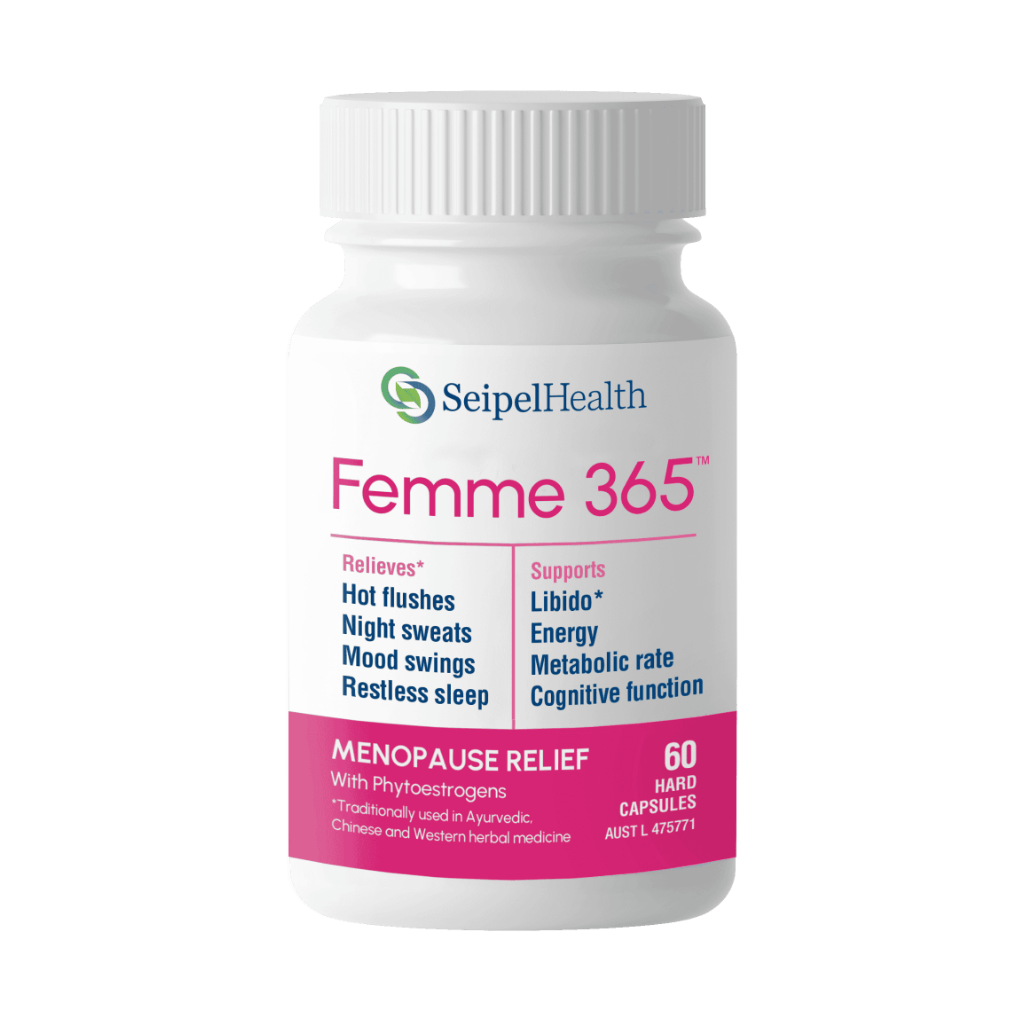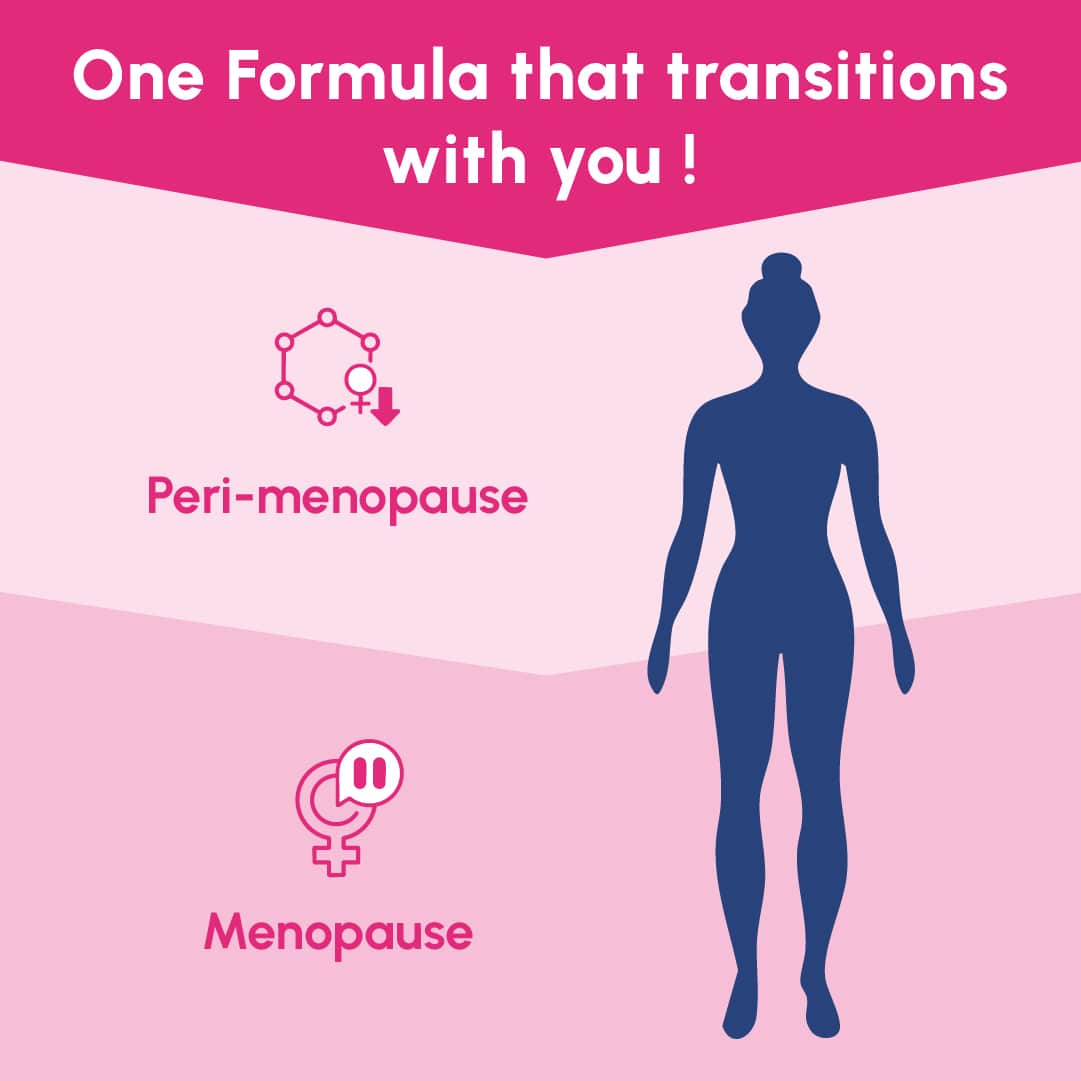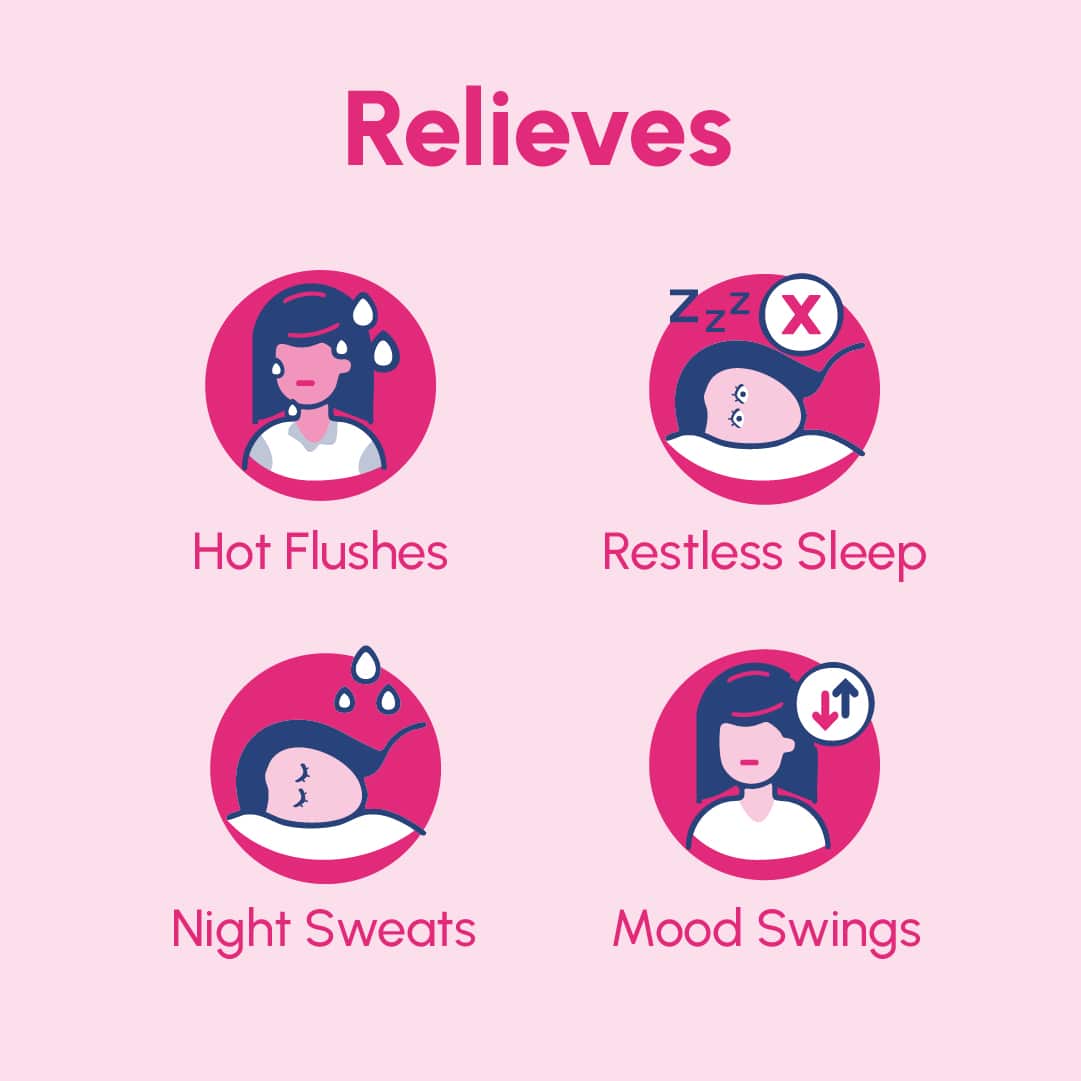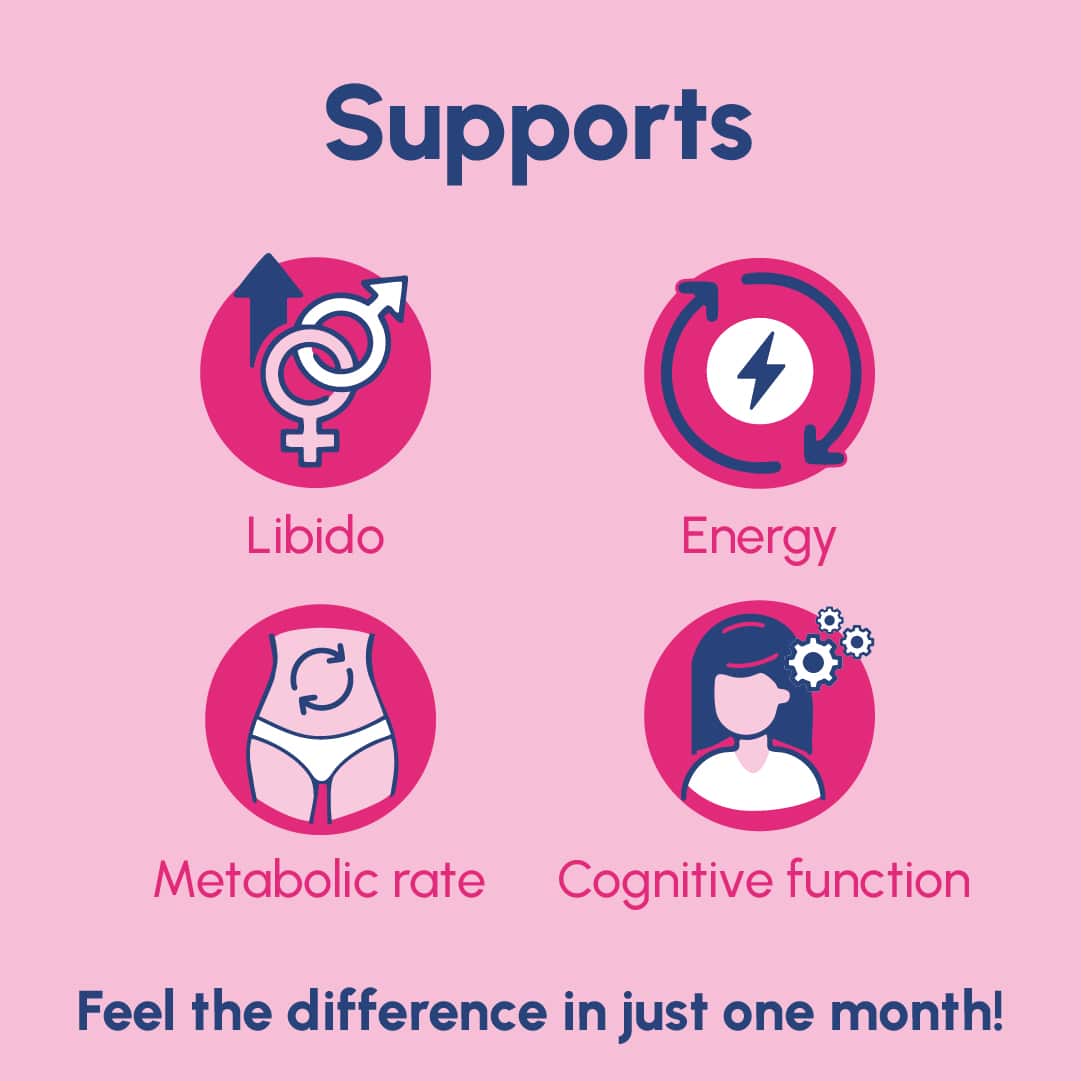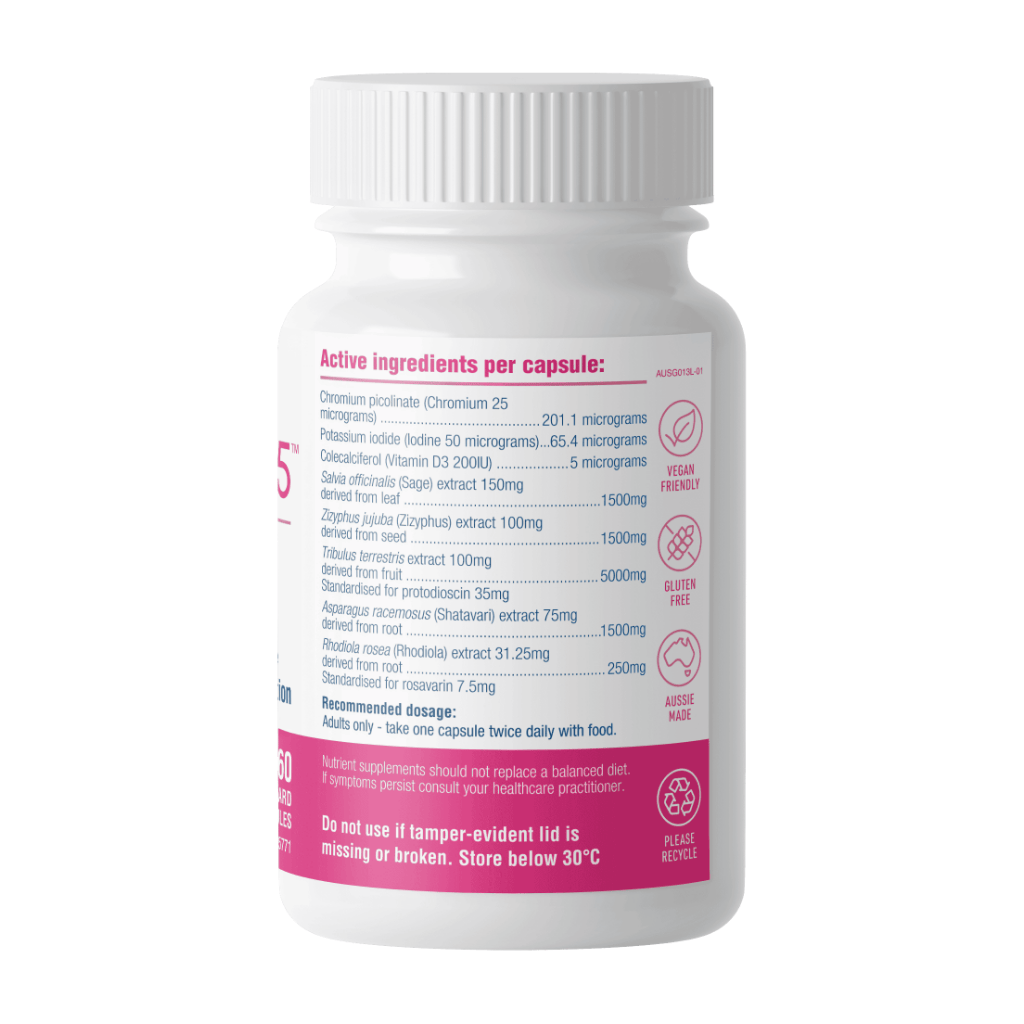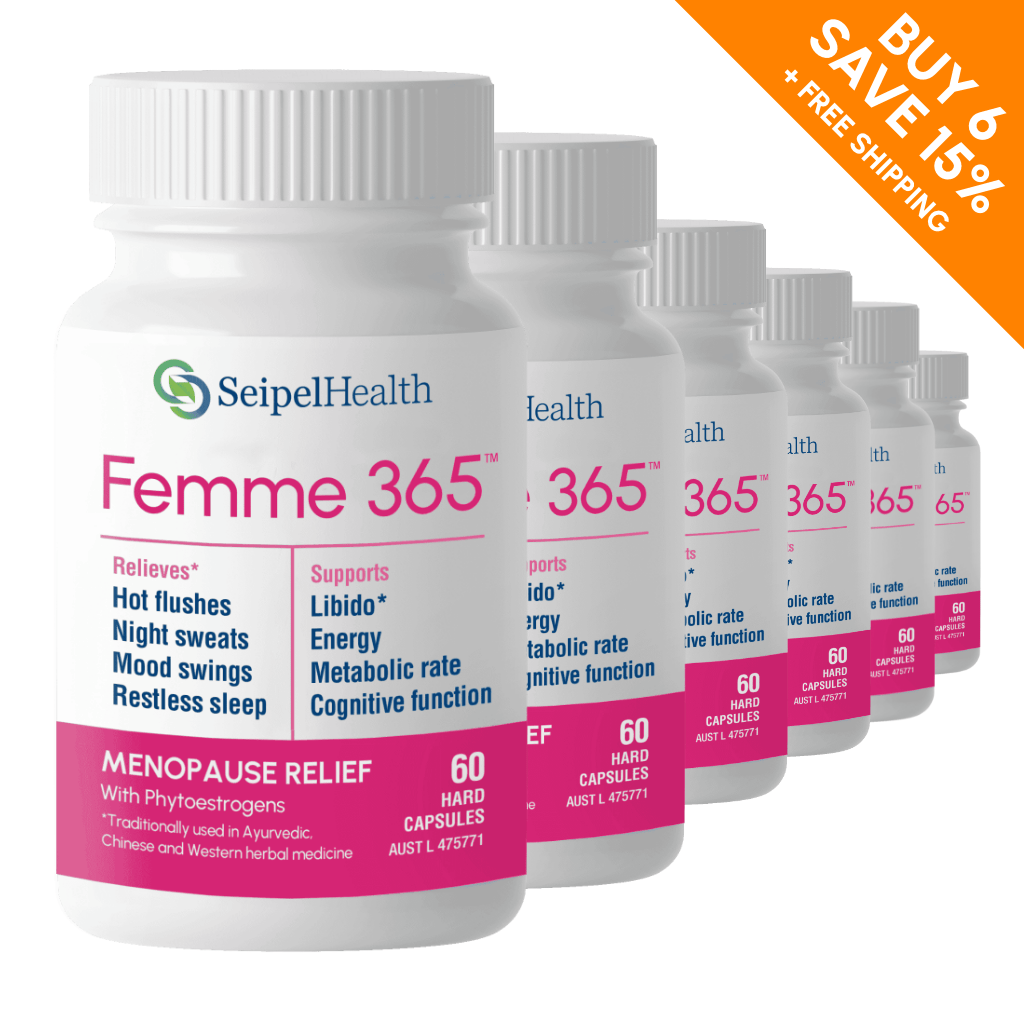Menopause brings changes — your symptoms are real, and support is here.
Menopause is a natural life stage, but it doesn’t always feel natural when symptoms arrive. Menopausal experiences are unique — while some women move through this stage with few changes, others may face symptoms that significantly affect daily life. Hot flushes, mood swings, fatigue, and brain fog can feel like they’re taking over your daily rhythm. These changes are real, and they’re not “just in your head.” The good news? There are natural ways to support your body and ease the transition.
What’s Happening in Your Body?
During perimenopause and menopause, hormones like oestrogen, progesterone,
testosterone, and insulin, shift in unpredictable patterns. This can affect everything from temperature regulation to mood balance and even how clearly you think. Around 85% of women report at least two symptoms, while about 10% of women seek support from their healthcare professional. Each woman’s experience is unique, but some common challenges include:
-
Hot flushes & night sweats
Sudden waves of heat, flushing, and sweating can feel overwhelming and often
disrupt sleep. These are some of the most recognised menopause symptoms,
affecting many women. They happen because fluctuating oestrogen levels impact your body’s thermostat in the hypothalamus, making it more sensitive to even slight changes in temperature (1). -
Mood swings & anxiety
Have you noticed feeling irritable, teary, or restless more often? That’s not “just in
your head.” Oestrogen and progesterone interact closely with brain chemicals like serotonin and GABA, both of which regulate mood and calmness. As these
hormones dip and rise unpredictably, your emotional balance can feel shaken (1). -
Brain fog
Struggling to find the right word, unable to concentrate on daily tasks, or forgetting what you came into a room for? Many women describe this as “brain fog.” Oestrogen plays a vital role in cognition and memory, so when levels drop, it can affect how clearly you think and concentrate. The good news is, with support, many women find their mental clarity returns (1). -
Urogenital changes
As hormone levels fall, vaginal tissue becomes thinner and less elastic, often leading to dryness, discomfort, or irritation. Lower oestrogen also affects the urinary tract, which is why recurrent urinary tract infections (UTIs) may occur during this stage. While not always talked about, these changes are very common and there are many ways to support tissue health and comfort (1). -
Libido changes
Shifts in sexual desire are a normal part of menopause. For some, intimacy becomes less appealing due to hormonal changes, vaginal dryness, or fatigue, while for others, libido may return or even increase once contraception is no longer a concern. Every experience is unique, and none of them are “wrong” (1). -
Fatigue
Feeling like your energy is constantly drained? Hormonal changes can interfere with restorative sleep (especially if hot flushes wake you at night), while stress and life demands add to the picture. It’s no wonder fatigue is one of the most commonly reported symptoms (1). -
Other physical changes
Menopause can also influence the body in other subtler ways, such as increased abdominal fat, loss of muscle mass, thinning hair, changes in skin elasticity, bone density shifts, joint aches, palpitations, or trouble sleeping. These symptoms don’t appear for every woman, but they are part of the natural adjustments your body makes (1).
Menopause may bring challenges, but it’s also a time of renewal. With the right support, your body can adapt, and you can move forward feeling calmer, stronger, and more in tune with yourself.
How Herbs Can Help — Femme 365 Spotlight
Herbal medicine has been trusted for centuries to help women navigate times of transition with greater ease and balance. The wisdom of plants offers a natural way to support the body, calm the mind, and nurture resilience when hormones are shifting.
Femme 365 is a scientifically backed blend that brings together carefully selected herbs traditionally used to ease the very challenges many women experience during the
menopausal transition.

In addition to these carefully selected herbs, Femme 365 also provides key nutrients that further support wellbeing, energy, and resilience during menopause.
Nutrient Foundations (the Femme 365 nutrient support)
-
Chromium picolinate
Chromium picolinate is a highly bioavailable form of chromium, a trace mineral that supports healthy metabolism. By helping the body process glucose efficiently, it contributes to balanced energy levels and can assist with maintaining everyday vitality, particularly during life transitions (5).
-
Potassium iodide
Potassium iodide provides a source of iodine, an essential nutrient needed for healthy thyroid function. The thyroid helps regulate metabolism, energy production, and mental clarity. Adequate iodine intake supports overall wellbeing and helps maintain energy and balance throughout the day (6).
-
Vitamin D3 (Cholecalciferol)
Vitamin D3 is the natural form of vitamin D, important for calcium absorption and supporting healthy bone development and maintenance. It also plays a role in muscle function, immune system health, and general vitality. Ensuring sufficient vitamin D3 helps maintain strength and wellbeing during and after menopause (5).
Together, these carefully chosen herbs and essential nutrients create a holistic formula that supports body, mind, and spirit during the menopausal transition. If you’re experiencing symptoms that feel overwhelming, know that support is available. Femme 365 offers you a gentle yet comprehensive way to navigate change with balance, vitality, and renewed confidence.
Support your body and mind during menopause
Disclaimer:
Nutrient supplements should not replace a balanced diet. If symptoms persist consult healthcare practitioner. Adults Only. Iodine should not be taken with overactive thyroid, please consult your healthcare provider.
References:
- Moradi, M., Ghavami, V., Niazi, A., Seraj Shirvan, F., & Rasa, S. (2023). The
Effect of Salvia Officinalis on Hot Flashes in Postmenopausal Women: A
Systematic Review and Meta-Analysis. International journal of community
based nursing and midwifery, 11(3), 169–178.
https://doi.org/10.30476/IJCBNM.2023.97639.2198 - Bone, K. (1997). Clinical applications of Ayurvedic and Chinese herbs:
Monographs for the Western herbal practitioner (pp. 87-88). Phytotherapy
Press. - Bone, K. (2007). The ultimate herbal compendium: A desktop guide for herbal
prescribers (pp. 57-66). Phytotherapy Press. - Gudise, V. S., Dasari, M. P., & Kuricheti, S. S. K. (2024). Efficacy and Safety
of Shatavari Root Extract for the Management of Menopausal Symptoms: A
Double-Blind, Multicenter, Randomized Controlled Trial. Cureus, 16(4),
e57879. https://doi.org/10.7759/cureus.57879 - Braun, L., & Cohen, M. (2015). Herbs & natural supplements: An evidence-based guide, volume 2 (4 th ed.). Elsevier.
- Torti, J. F., & Correa, R. (2023). Potassium iodide. StatPearls [Internet].
https://www.ncbi.nlm.nih.gov/books/NBK542320


